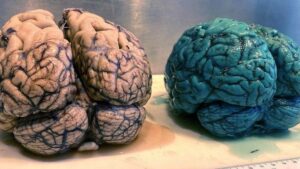“Are You Eating Enough to Live—or Just Living to Eat? Discover the Surprising Truth Behind Overfeeding and Undernourishment!”
Luckily, there are ways to fix this. Sustainable farming practices and cutting back on chemicals can help rebuild soil health. In addition, adding a variety of whole foods to your diet, like grains, legumes, nuts, seeds, and organic produce, can help you get those vital nutrients back.
10. Drinking Irresponsibly


Be it beer, wine, or cocktails, alcohol delivers calories primarily from ethanol and added sugars without providing protein, vitamins, minerals, or fiber.
Studies have shown that alcohol disrupts the body’s ability to metabolize nutrients, plus excessive consumption can impair the absorption of vitamins B1, B12, folate, and zinc, leading to nutrient deficiencies over time
11. Consuming Coffee With Additives


Flavored coffee drinks, such as mochas and frappuccinos, are a quick pick-me-up option, but they turn coffee from a low-calorie beverage into a full-fledged dessert.
Even an innocent-looking flavored latte can have 200–300 calories, depending on your chosen additives. Sticking to black coffee is better to keep it rich in antioxidants and low in calories.
12. Overuse of Antibiotics in Food Production


Antibiotics used in livestock raising can impact your gut microbiome when consumed repeatedly through the food chain. These antibiotics may alter or disrupt the balance of bacteria in your gut. A healthy gut microbiome supports digestion, helps absorb nutrients, and strengthens your immune system. However, when this balance is disrupted, it can reduce immunity, cause poor digestion, or even cause long-term health problems like antibiotic resistance.












